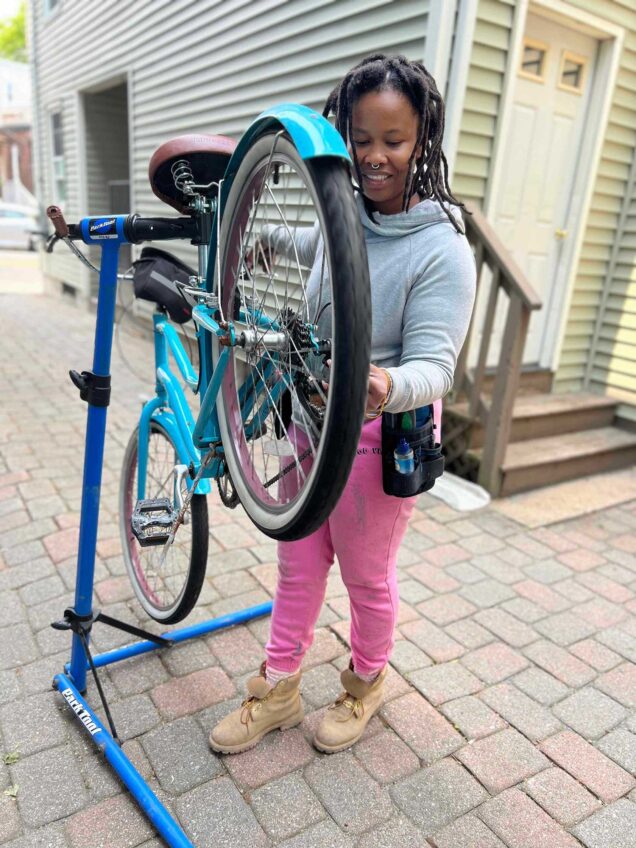Banner Business Sponsored by The Boston Foundation
A judge has tossed a lawsuit targeting Progressive Insurance and small-business funding platform Hello Alice for a grant program offered to Black small business owners.
The decision, handed down by the U.S. District Court for Northern Ohio, found plaintiff Nathan Roberts, owner of Cleveland-based Freedom Truck Dispatch LLC, lacked the standing to sue the companies over a grant program it offered to Black small-business owners to purchase a new truck.
The plaintiff alleged the grant program violated anti-discrimination laws. Ultimately, the court decided Roberts did not suffer an injury that would allow him to sue and seek damages, and thus, it decided to toss other legal and constitutional questions that were part of the lawsuit.
Elizabeth Gore, co-founder and president of Hello Alice, said in a news release she was thrilled with the outcome. She previously outlined what she felt were the dangers of the lawsuit, including chilling the desire of large companies to offer their own grant programs and ridding them of a useful way to strengthen their own supply chains.
“This resolution marks a pivotal moment not only for our company but for the broader small-business community in the United States,” Gore said. “Facing a labor shortage, heightened interest rates and inflation, this country needs its small-business owners, and they, in return, need the capital and resources that programs like Hello Alice provide.”
Attempts to reach America First Legal, the organization that helped bring the lawsuit, for comment were unsuccessful by deadline.
“It beats back a meritless lawsuit and makes clear that the federal courts will not hear weak challenges such as these” said Neal Katyal, lead counsel from Hogan Lovells US LLP, which represented Hello Alice in the case. “The dismissal of this case is significant because the lawsuit would make it more difficult for diverse small businesses to compete in today’s economy.”
Katyal said the plaintiffs could try to appeal the decision, but he said he was “tremendously confident” in their legal position and is ready to set a broader precedent at the Court of Appeals if they do. The decision follows a recent announcement by Hello Alice that it had completed another funding round, bringing it to a $130 million valuation, with investors including Guy Fieri and QED Investors LLC, as well as Mastercard Inc.
Lawsuits against minority-focused programs are growing
The lawsuit against Hello Alice is part of a broader attack on small-business programs targeted at minorities or other disadvantaged groups.
The city of Alexandria, Virginia, was sued over a grant program in 2023, and it ultimately agreed to scrap it. Separately, Atlanta venture firm Fearless Fund was sued over its program for Black women entrepreneurs.
Other lawsuits have already had an impact on government programs.
The Small Business Administration lost a court challenge on the basis of race — a lawsuit against a prominent small-business rescue program known as the Restaurant Revitalization Fund during the height of the Covid-19 pandemic. The $28.6 billion grant program first opened its application process to underserved, economically disadvantaged business owners, then to all owners.
In June 2021, several lawsuits challenged that priority application period, and rulings by the U.S. District Court for the Northern District of Texas and elsewhere forced the SBA to freeze pending payments to 2,965 priority applicants. Ultimately, the SBA was unable to fund the applications of the remaining priority applicants and ended up disbursing grants to nonpriority applications, effectively draining the program of its remaining funding.
A separate lawsuit targeting the SBA’s 8(a) program, which provides mentoring, resources and set-aside contracts to underserved small businesses, forced the agency to temporarily suspended new application submissions. The agency later released a number of new guidelines for business owners applying to the program.
The court decisions that dealt with the 8(a) program specifically cited a decision by the U.S. Supreme Court that severely curtailed affirmative action, saying treating people based on their race specifically violates the equal protection clause of the U.S. Constitution. Subsequent lawsuits have targeted corporate-sponsored diversity and equity programs.
Andy Medici is senior reporter for The Playbook and The Business Journals.






